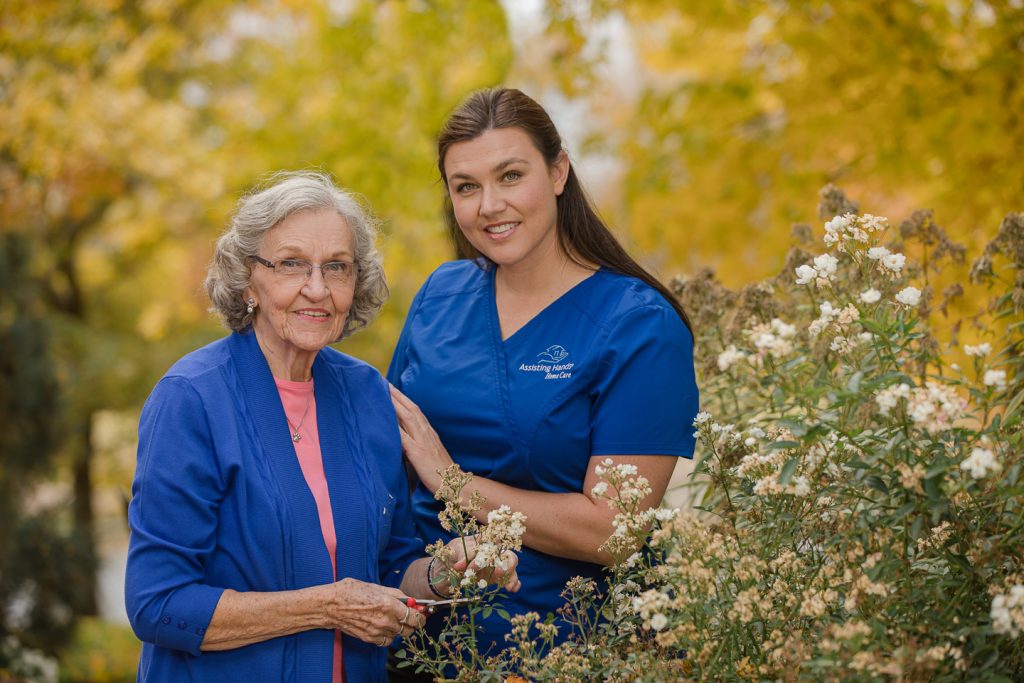
Passing wind is a normal occurrence for healthy individuals. Most people release flatulence at least 14 times per day. While that’s a lot, older folks have the unbecoming reputation for passing gas more frequently than younger people. Here’s a look at why flatulence increases with age.
Flatulence, the expulsion of air from the digestive system, is a natural bodily process. This air is primarily composed of gases such as hydrogen, methane, and carbon dioxide, produced during the breakdown of food. Additionally, gases like oxygen and nitrogen may accumulate in the digestive tract when air is swallowed while eating or drinking. While a small amount of air is ingested daily, excessive swallowing can result in increased flatulence.
The amount of gas a person passes depends on varying factors, including diet and medications. Additionally, certain health conditions can cause an individual to experience more gas. Older folks are likely to pass more wind for the following commonplace reasons.
1. Swallowing more air
Swallowing a lot of air passes through the body via burping or as excessive flatulence. Seniors may swallow a good deal of air as a result of wearing loose dentures, drinking carbonated sodas, and eating or drinking too fast. Smoking and chewing gum also introduce more air into the body.
2. Dietary choices
Foods seniors eat can contribute to uncomfortable gassiness. Carbohydrates, for instance, are notorious for causing gas. Vegetables often favored by old people and that increase the frequency of flatulence include beans, cabbage, Brussels sprouts, artichokes, peas, corn, lentils, and broccoli.
Commonly eaten foods, such as whole grains, wheat, and oat bran lead to more instances of gas. Fruits, like prunes, raisins, apples, and pears equally contribute to bouts of gas. Milk, dairy products, and processed foods are known triggers for flatulence, too.
Since the aging body is unable to completely absorb certain foods, they pass from the intestine into the colon without being fully digested. Once in the colon, the food is broken down by bacteria, a process that releases gases. The buildup of gases causes flatulence.
Not all foods cause flatulence in all seniors. Older people who are made uncomfortable by gassy episodes are advised to keep track of the foods they eat. Narrow down which foods cause gaseous symptoms inside the body and avoid them whenever possible.
3. Slower metabolism
Experts believe that older people’s metabolism slows down with age. Since the food sits longer in the digestive system, more gas is created, and frequent bouts of flatulence are the outcome. Plus, aging people naturally have less stomach acids, which are necessary to digest food well.
4. Weakened digestive muscles
The digestive process begins at the mouth during the process of chewing and swallowing. The digestive tract includes the esophagus that connects the throat to the stomach, the esophageal sphincter that allows food to pass to the stomach, and the large and small intestines.
The organs of the digestive tract contain a layer of muscle that gives their walls movement and flexibility. Food travels from one organ to the next through muscle activity. When seniors’ digestive muscles lose strength, the digestive system slows down and more gas is produced.
5. Less lactase production
Lactose intolerance increases with age. Older people’s bodies produce less lactase, which is an important enzyme needed to digest dairy products. As a result, seniors who drink milk, eat cheese, or consume other dairy products will find themselves tooting more frequently.
6. Medication side effects
Constipation and bloating are common side effects of some medications, including those for high blood pressure, type 2 diabetes, or heart disease. Gas is retained when constipation occurs. Seniors may experience more frequent episodes of flatulence when taking these medications.
7. Medical conditions
In addition to lactose intolerance and constipation, other temporary and chronic health conditions can contribute to excessive amounts of gas. Seniors suffering from gastroenteritis, diabetes, Crohn’s disease, ulcerative colitis, peptic ulcers, and gastroesophageal reflux disease (GERD) may pass wind more often.
8. Decrease in physical activity
It is common for seniors to experience a decrease in physical activity due to changes in the body and energy levels as well as physical limitations. Movement and exercise decrease the buildup of gas in the body so a decrease in physical activity leads to more gas buildup.
Seniors can decrease gas buildup by making it a point to move and/or exercise regularly. This can include anything from taking a walk to more intense physical activity. Make sure your loved ones engage in physical activity that is safely within their ability.
9. Sleep apnea
Sleep apnea is a sleep disorder in which breathing starts and stops during sleep. This condition is treated with a CPAP machine that forces air into the airways for consistent breathing. Those who have sleep apnea swallow more air during the night which can cause them to wake up feeling gassy or bloated in the morning.
Seniors who have sleep apnea are urged to treat it by using a CPAP machine. This will not only help reduce gas buildup, but more importantly, ensure consistent breathing at night and reduce the risk of serious side effects caused by sleep apnea such as heart conditions.
How do seniors relieve excess gas?
Lifestyle changes and modifications to diet are home remedies that help reduce flatulence. Identify the foods that cause gas and try eating less of them. Consume easy to digest carbohydrates, such as rice and bananas, rather than eating large amounts of carbs that are difficult to digest.
Give the digestive system a break by eating five or six smaller meals throughout the day, instead of three big ones. Swallow less air by chewing properly and quitting smoking. Since constipation causes gas, ease this health problem by hydrating with plenty of water each day.
Seniors who engage in a regular exercise routine enhance their digestion, which in turn can prevent gas. Promote regular digestion and reduce gas by taking probiotics, such as Lactobacillus or Bifidobacterium, which can be found in yogurt or are available as over-the-counter supplements.
Senior Home Care from Assisting Hands

Passing wind frequently can be an embarrassing event for some seniors or a source of abdominal discomfort. When your elderly loved one aims to reduce her flatulence, she may need to make lifestyle or dietary changes. Assisting Hands Home Care can help a senior achieve her health goals.
As a leading senior care agency staffed with teams of compassionate caregivers, we are prepared to support your elderly loved one with the activities of daily living. We prepare balanced meals that reduce gas, shop for foods that do not contribute to gas, and discreetly assist with personal hygiene tasks.
Seniors who take lactase to help relieve gas when eating dairy products are given medication reminders from our professional caregivers. We also provide transportation to the doctor’s office when the elderly care recipient aims to treat a health condition that causes flatulence.
Assisting Hands Home Care provides the highest level of non-medical home health care in Coppell, TX | Dallas, TX | Highland Park, TX | Richardson, TX | University Park, TX, and the surrounding areas. Our caregivers are licensed, bonded and insured, thereby delivering maximum peace of mind to families. Call us at (214) 760-6944 to schedule an in-home consultation and improve your senior loved one’s quality of life.







